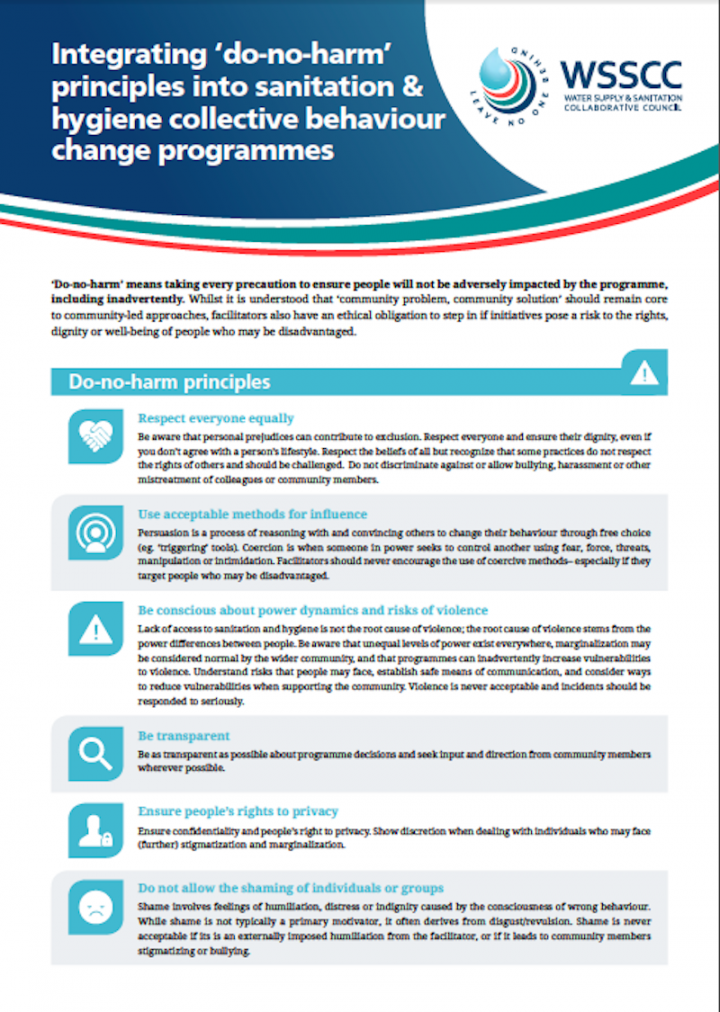'Do No Harm' Principles in Behaviour Change Programming WSSCC (2019)
‘Do-no-harm’ means taking every precaution to ensure people will not be adversely impacted by the programme, including inadvertently. Whilst it is understood that ‘community problem, community solution’ should remain core to community-led approaches, facilitators also have an ethical obligation to step in if initiatives pose a risk to the rights, dignity or well-being of people who may be disadvantaged. For a more in-depth read on 'do no harm', download WSSCC's Equality and Non-Discrimination Handbook for CLTS Facilitators. Also relevant is the in-depth two-part diagnosis of GSF’s approach to equality and non-discrimination.
Bibliographic information
WSSCC (2019). 'Do No Harm' Principles in Behaviour Change Programming WSSCC
Filter / Tags
English
Downloads

Published in: 2019
Pages: 2
Publisher:
WSSCC
Author(s):
WSSCC
Uploaded by:
WSSCC
Water Access and Sanitation Collaborative Council
